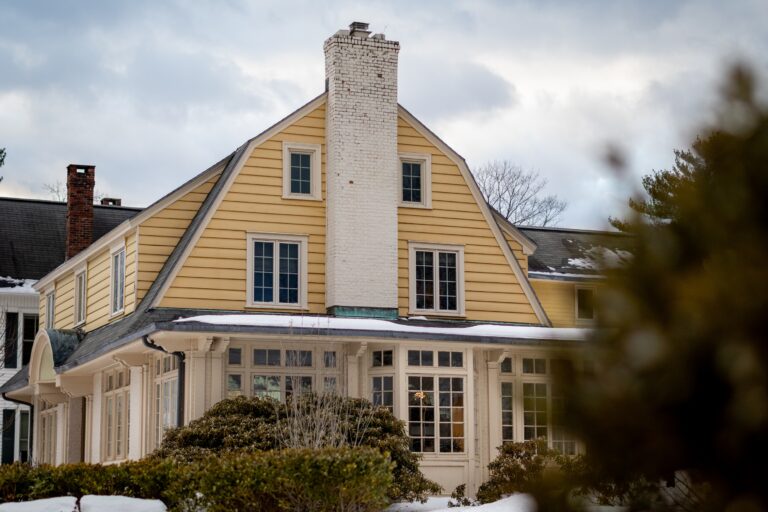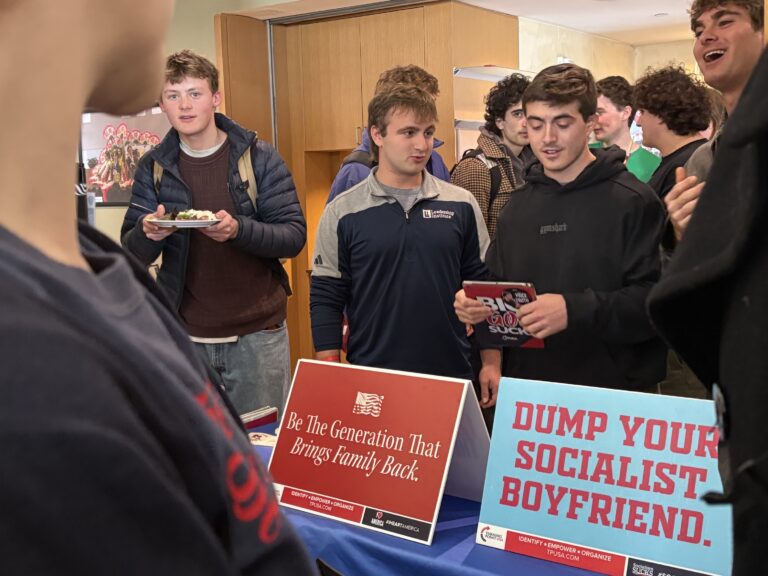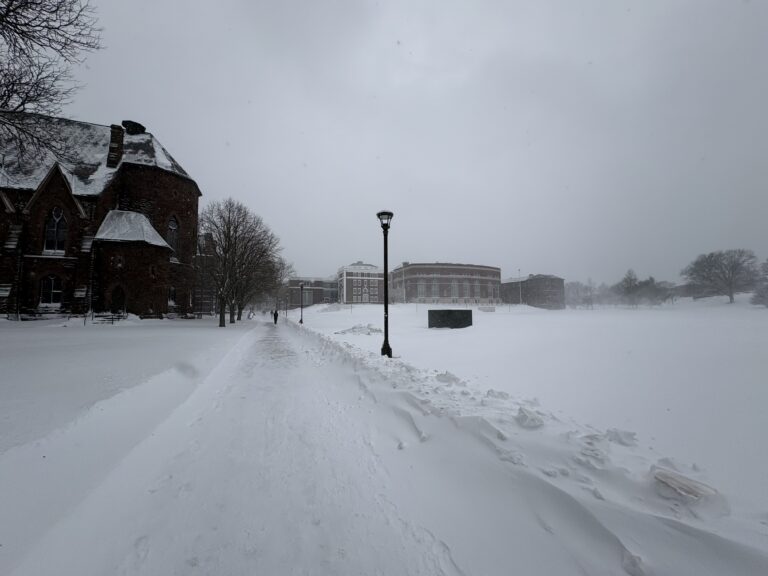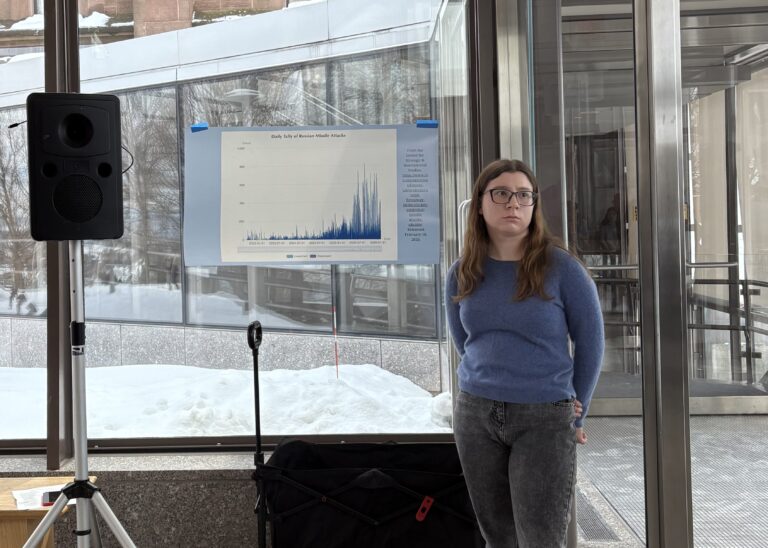WesMatch, the original internet addiction, is back
After intensive redevelopment, WesMatch is back online. The student-programmed site now boasts more features that include across-school networking, personalized compatibility questions and the ability to download information to a cell phone. These improvements are intended to provide students with additional tools to explore social relationships through the Internet.
“We hadn’t updated the site since last spring, but after we graduated we had a lot more time to work on it, and we’ve spent the last few months redeveloping the site,” said Dan Stillman ’04, one of WesMatch’s co-creators. “We’ve added lots of new features—user-created questions, cross-school social networking, the WesMatch Date Request System—’Never send a love letter when a form letter will do’—and a number of others, along with a complete site redesign.”
Created in the spring of 2002 by Stillman and Matt Eaton ’04, now a graduate student at Wesleyan, WesMatch is primarily known for offering users a questionnaire, the answers to which are used to compile a list of students with high “compatibility” ratings. These ratings are meant to gauge, in part, the romantic potential of any two people on WesMatch.
“We get couples who are very happy with us because they’re each other’s top matches and ex-couples who are very unhappy with us because they are each other’s top matches,” Stillman said.
The questionnaire asks a user about his or her social habits, political beliefs, and even preferences concerning the masculinity or femininity of a potential partner. Once registered on WesMatch, users can request that matches be made for them, add others to their ‘MatchLink’ list, alert users if their desired person is interested, and request dates. There is even a ‘Height-o-Meter’ to compare physical stature with another WesMatch user.
“We don’t want people to sit in their rooms all day and surf around” Stillman said. “We want people to get out there and meet each other. ”For all the fancy computer science and compatibility matching algorithms and what-not that we put into the site, we’re happy if two people just say, ‘Well, gee, isn’t this silly…So why don’t we go out for coffee?’“
WesMatch has followed the wake of larger social networking websites such as Facebook and Friendster, which have built a national following. Facebook, which originated to serve the needs of Harvard students, now operates for dozens of schools across the country.
WesMatch currently serves six schools: Wesleyan, Williams, Princeton, Oberlin, Colby, and Bowdoin. Yet Stillman and Eaton envision their creation as unique from other networking sites, offering more potential to craft new relationships based on compatibility.
”Being computer geeks with irrational faith in technology, we set out to create a website that takes the things that are important to people into consideration and helps them separate the wheat from the chaff,“ Stillman said. ”So, while we’re happy to tell you who your friends are too and who their friends are and so on, we also try to tell you something else: whom you might want to be friends with.“
The idea of compatibility rating has been so appealing, Stillman noted, that it was even plagiarized by the Yale College Council. In the spring of 2004, Yale students launched a Yale social networking Web site called YaleStation Degrees, which, the creators argue, was copied verbatim. In response, Stillman and Eaton turned to legal action, and the case was settled in their favor out of court. YaleStation Degrees was taken down and two Yale students were forced to pay restitutions for copyright infringement.
The creators have ambitious plans for the future, planning to expand WesMatch’s customized features to more schools. They hope to work with individual schools’ student governments to optimize the website for each particular college.
”More than anything else, we try to create a site that people can have fun using and use [the site] to meet people they might really get along with,“ Stillman said.
”And that can get Dan a girlfriend,“ Eaton added.







Leave a Reply